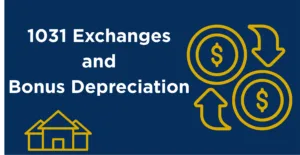As a real estate investor, you may wonder from time to time what your apartment building is actually worth. Not necessarily because you’re looking to sell, but maybe you’re applying for a new loan, updating your personal financial statement, or simply trying to keep a handle on your overall investment performance.
Valuation doesn’t have to be complicated. In fact, there are two basic ways to get a good ballpark idea of what your building might be worth. You don’t need an official appraisal to run the numbers. These methods are commonly used by investors to keep tabs on property value – and when used together, they can give you a pretty solid sense of where things stand.
Method One: Cap Rate
This is the preferred method for most investors. The capitalization rate, or cap rate, is a simple way to tie your building’s income performance to its overall value.
To start, you need your net operating income (NOI). That’s your gross rents, minus all of your expenses – not including debt service. You want the building’s income before you account for mortgage payments.
Once you’ve got that number, you’ll need to know what cap rates are typical for your market and your asset type. Average cap rates vary based on location, condition, tenant mix, and perceived risk. For example, in our market, a Class B apartment building might be valued using a 7% cap rate. That means an investor buying that kind of asset would expect a 7% return on their money from the income the building produces.
So, let’s say your NOI is $140,000 annually, and the typical cap rate for buildings like yours is 7%. You’d take that $140,000 and divide it by 0.07, which gives you a valuation of $2 million.
This method is especially useful when you know your numbers well and can confidently project ongoing income and expenses. But it’s always a good idea to double-check your result with a second lens.
Method Two: Price Per Unit
The price per unit method is a simple way to cross-check your valuation. It won’t be as precise as the cap rate approach, but it can help you determine whether your numbers are in line with market expectations.
Let’s say you own a 10-unit apartment building. If your cap rate valuation puts the property at $1.25 million, that comes out to $125,000 per unit. Now, look at other recent sales in your area for similar properties. Are they selling for about $125,000 per unit? Or do sale comps trend higher or lower?
If other properties with lower rents are selling for $110,000 per unit, but you’re at $125,000, your higher valuation might still be justified because of your stronger income. On the flip side, if you’re significantly over market averages without a clear reason, it’s worth a second look at your assumptions.
Investors often use price per unit as a backstop. It helps you gut-check the valuation you got from your cap rate calculation and spot any red flags before relying too heavily on one method.
When These Work Best
These two methods work best for buildings between 3 and 50 units. Once you get above that range, the value starts to rely more heavily on operational performance and institutional buyer standards. But for smaller to mid-sized apartment buildings, this two-pronged approach is a smart way to establish a fair and reasonable estimate.
Here’s what you need in order to do this well:
- A solid understanding of your building’s actual income and expenses
- A general idea of cap rates for your property type and market
- Sales data or comps for similarly sized buildings in your area
None of this requires specialized software or a formal appraisal. It just takes a little time, a calculator, and some market research.
Conclusion
You don’t have to wait for a refinance or sale to understand what your property is worth. Using the cap rate method and price per unit together can give you a clear, realistic sense of value. And in a market that’s always changing, that kind of insight can help you make better, faster decisions when it counts.
Looking for guidance when determining your property’s value? Our expert advisors can provide comps, market research, or a more in-depth broker’s opinion of value. Contact us today to get started.





